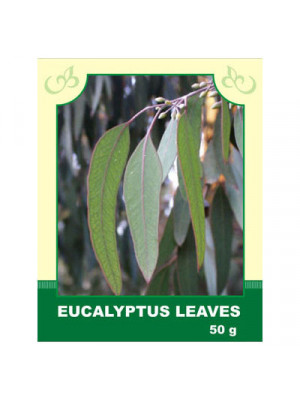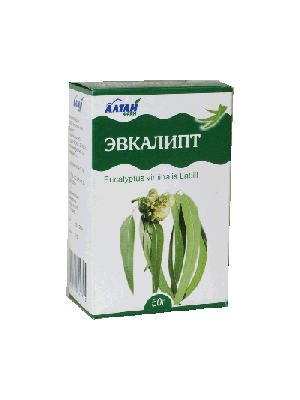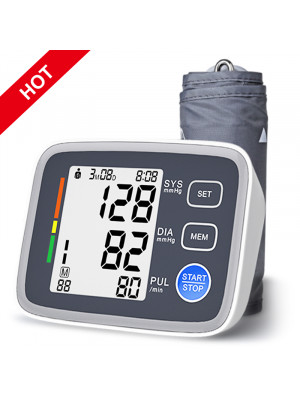Search results for 'Eucalyptus Leaves'
Internally. Eucalyptus is taken for abdominal pain and gastritis with reduced acidity, bronchial asthma, acute respiratory diseases, pleurisy, bronchitis, and tracheitis. Eucalyptus preparations have disinfectant, anti-inflammatory, analgesic, and antimicrobial properties.
Method of application and dosage: Boil 10 g of dried crushed raw materials for 15 minutes in 1 cup of water, strain, and bring the volume to the original one with boiled water. Take from 1 tablespoon to 1/4 cup 3-4 times a day, starting with a smaller dose and increasing with each intake.
Externally used for rinsing and inhalations in laryngitis, tracheitis, catarrhal and purulent bronchitis, abscesses and gangrene of the lungs, for washing infected boils, wounds, fistulas, ulcers, inflammation of the genital organs, for blepharitis in ophthalmic practice. For external use, prepare based on 2 tablespoons of leaves per 0.5 liters of boiling water.
Contraindications: Individual intolerance.
$6.99- Description. Native to Australia, the Eucalyptus is a traditional Aboriginal remedy for a variety of ailments. Today, it is used worldwide for many common problems. Eucalyptus leaves contain volatile oils, tannins, organic acids. Eucalyptus is antiseptic; it reduces muscle tension and spasms; expectorant; stimulant; reduces or prevents fever. Externally, the antiseptic, slightly anesthetic, anti-bacterial, and warming properties of Eucalyptus make it a valuable resource treatment of burns, sores, ulcers, scrapes, boils, and wounds.
Use. Internally, Eucalyptus appears to help relieve symptoms of colds, flu, chest congestion, sore throat, bronchitis, pneumonia, and respiratory infections. For internal use, Eucalyptus can be made into a tea or tincture. Teas can also be used as a gargle for relief of sore throat. Externally, the antiseptic, slightly anesthetic, anti-bacterial, and warming properties of Eucalyptus make it a valuable for burns, sores, ulcers, scrapes, boils, and wounds. Applied topically as an oil or ointment, it also helps relieve the pain of rheumatism, aching, pains, stiffness, and neuralgia. For outdoor enthusiasts, Eucalyptus rubbed into the skin seems to work well as an insect repellant. Rubbed into the chest, it relieves congestion and cough.
Attention! Before using any herbal products, make sure that you have full knowledge of how the herb works and any adverse reaction it may cause.$6.99






